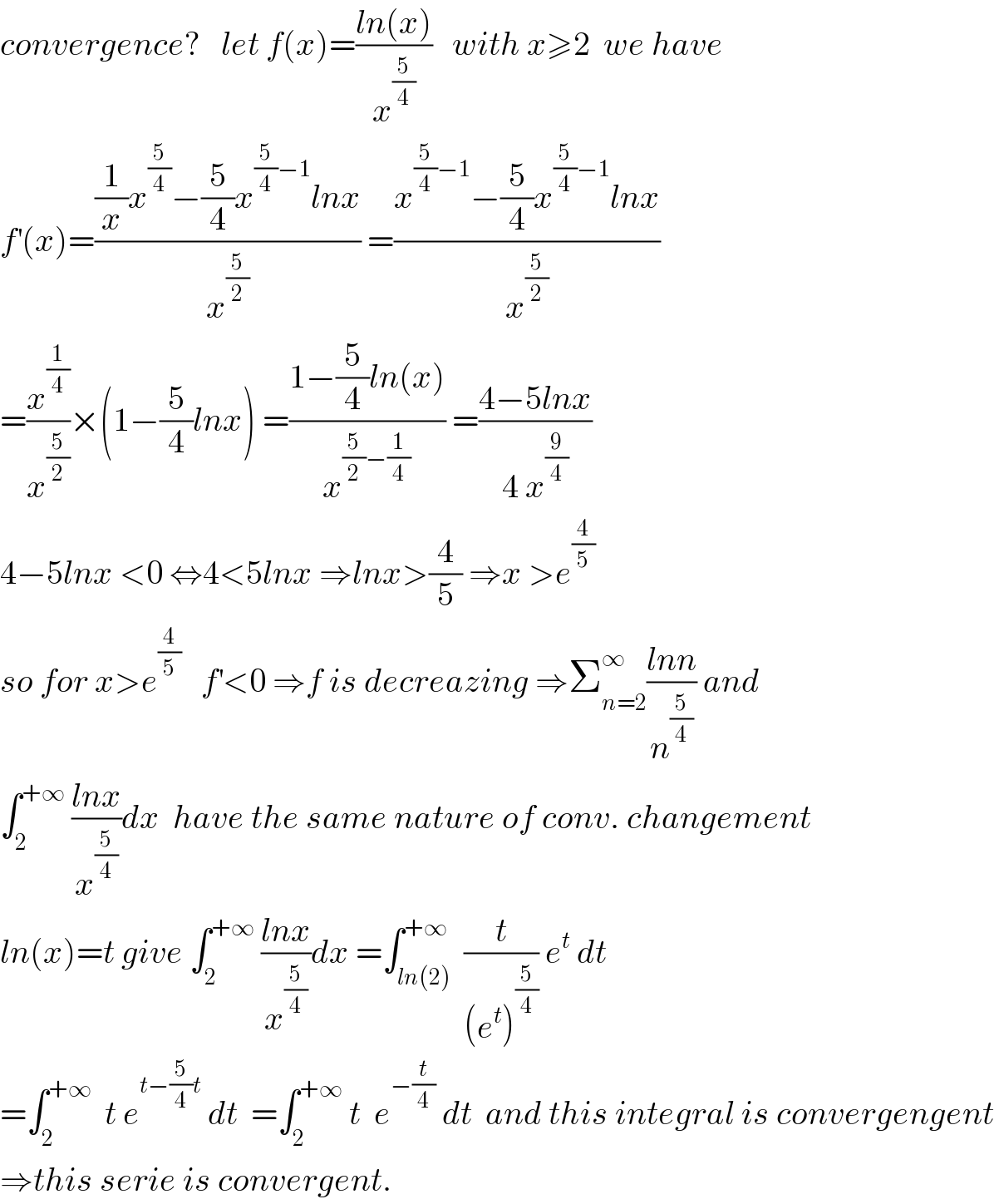
Question and Answers Forum
Previous in Permutation and Combination Next in Permutation and Combination
Question Number 78799 by Pratah last updated on 20/Jan/20

Commented by mathmax by abdo last updated on 20/Jan/20

Commented by mind is power last updated on 20/Jan/20

Commented by msup trace by abdo last updated on 21/Jan/20

Answered by mind is power last updated on 20/Jan/20

